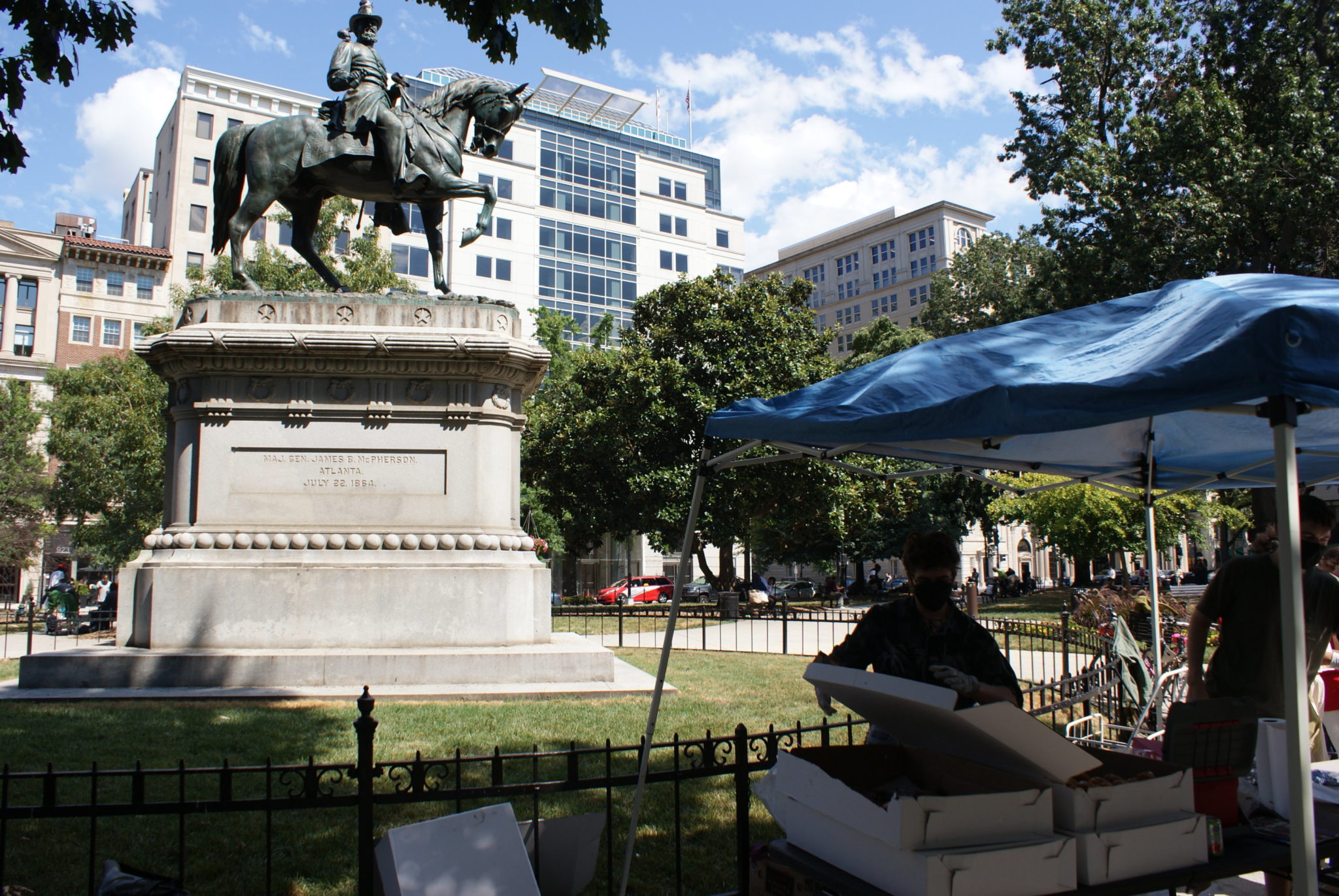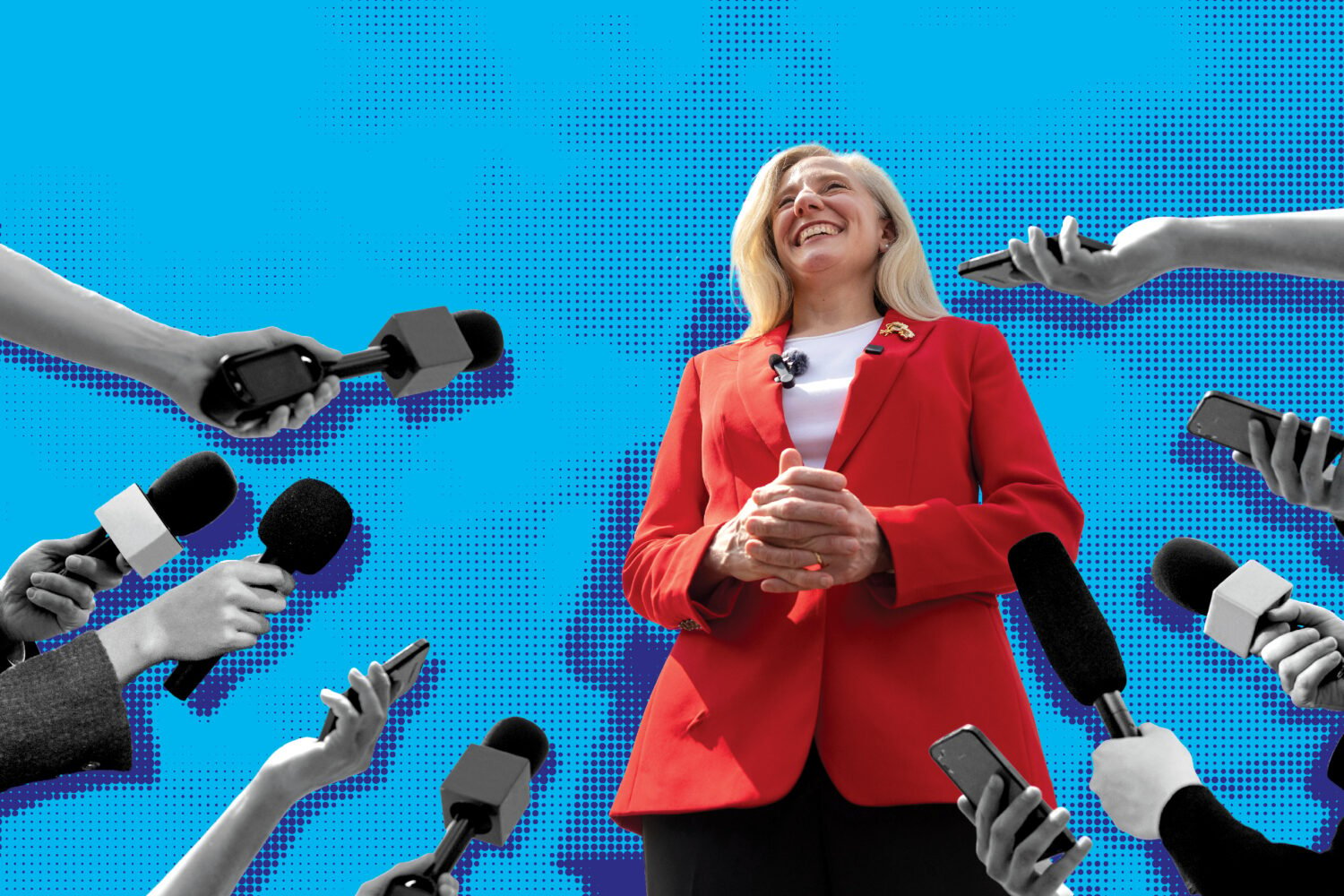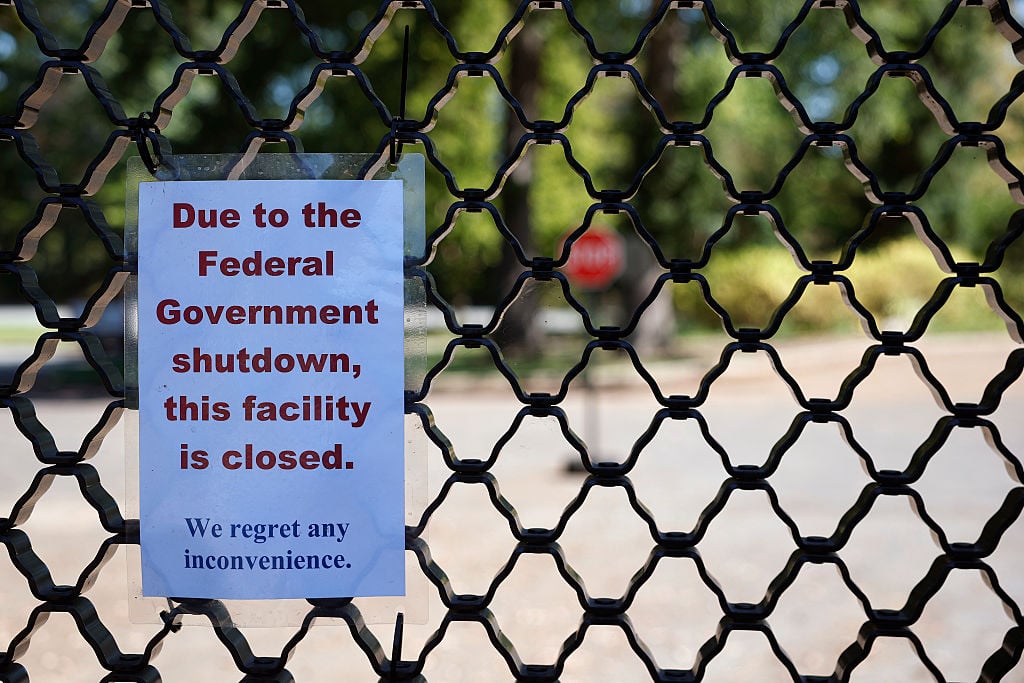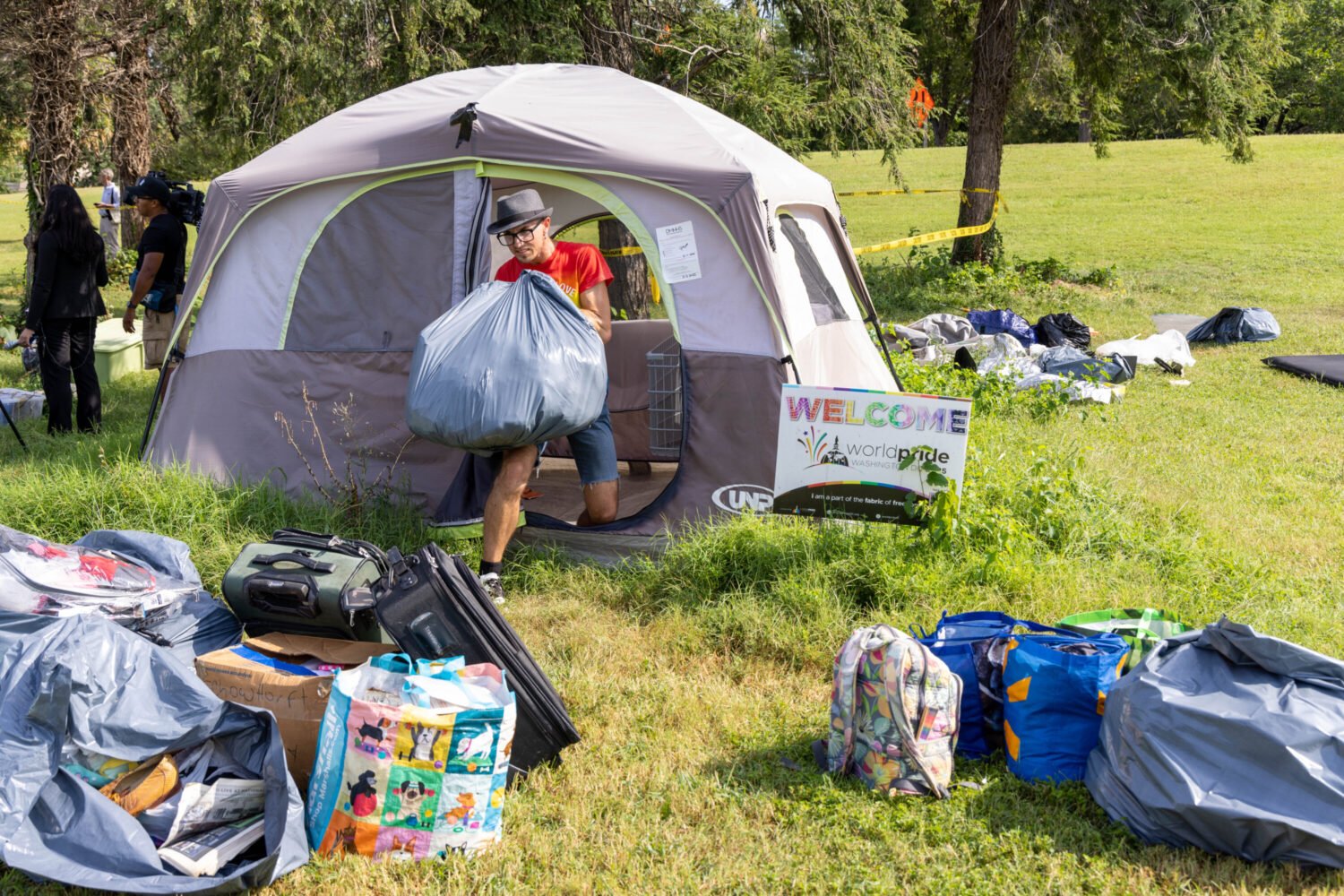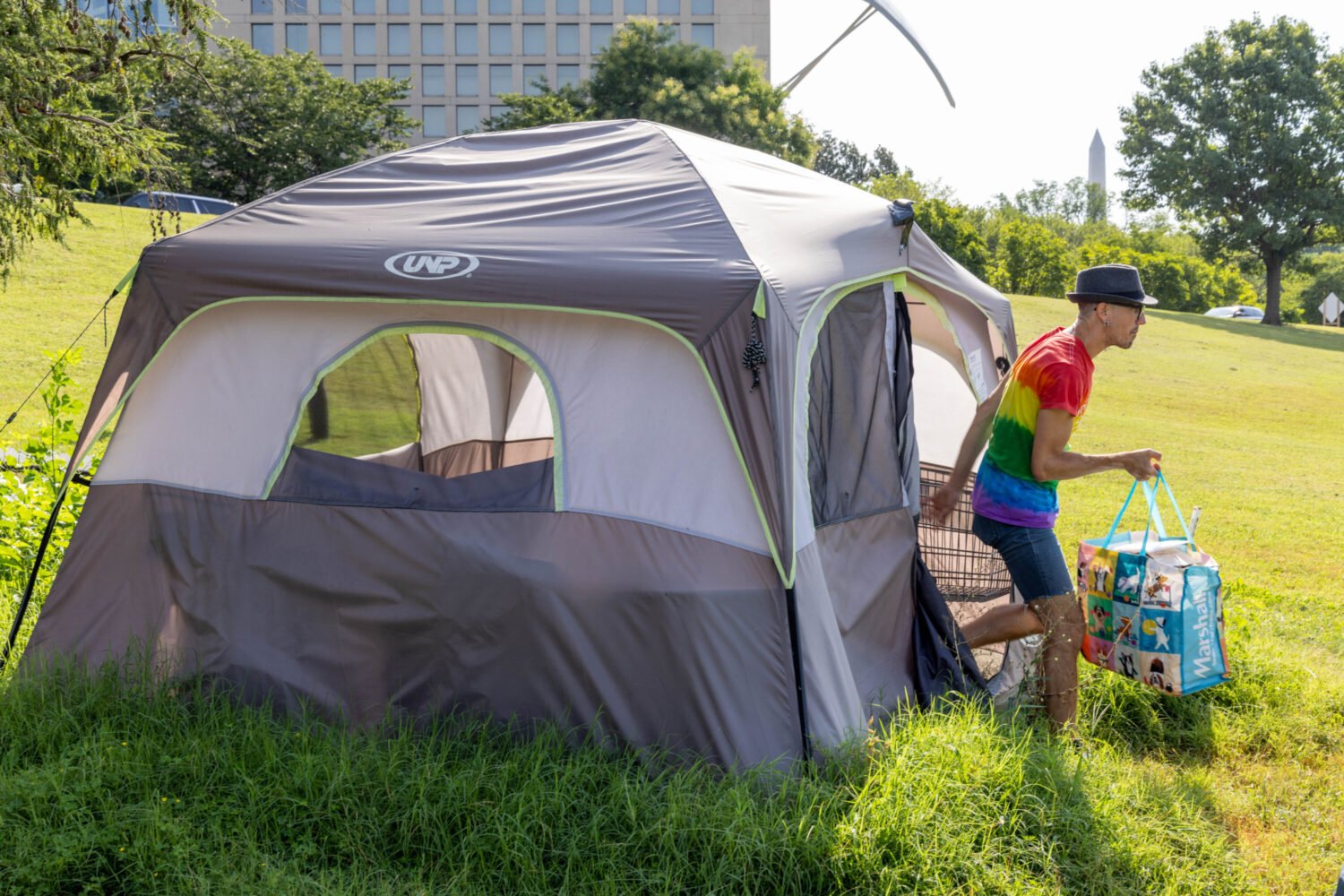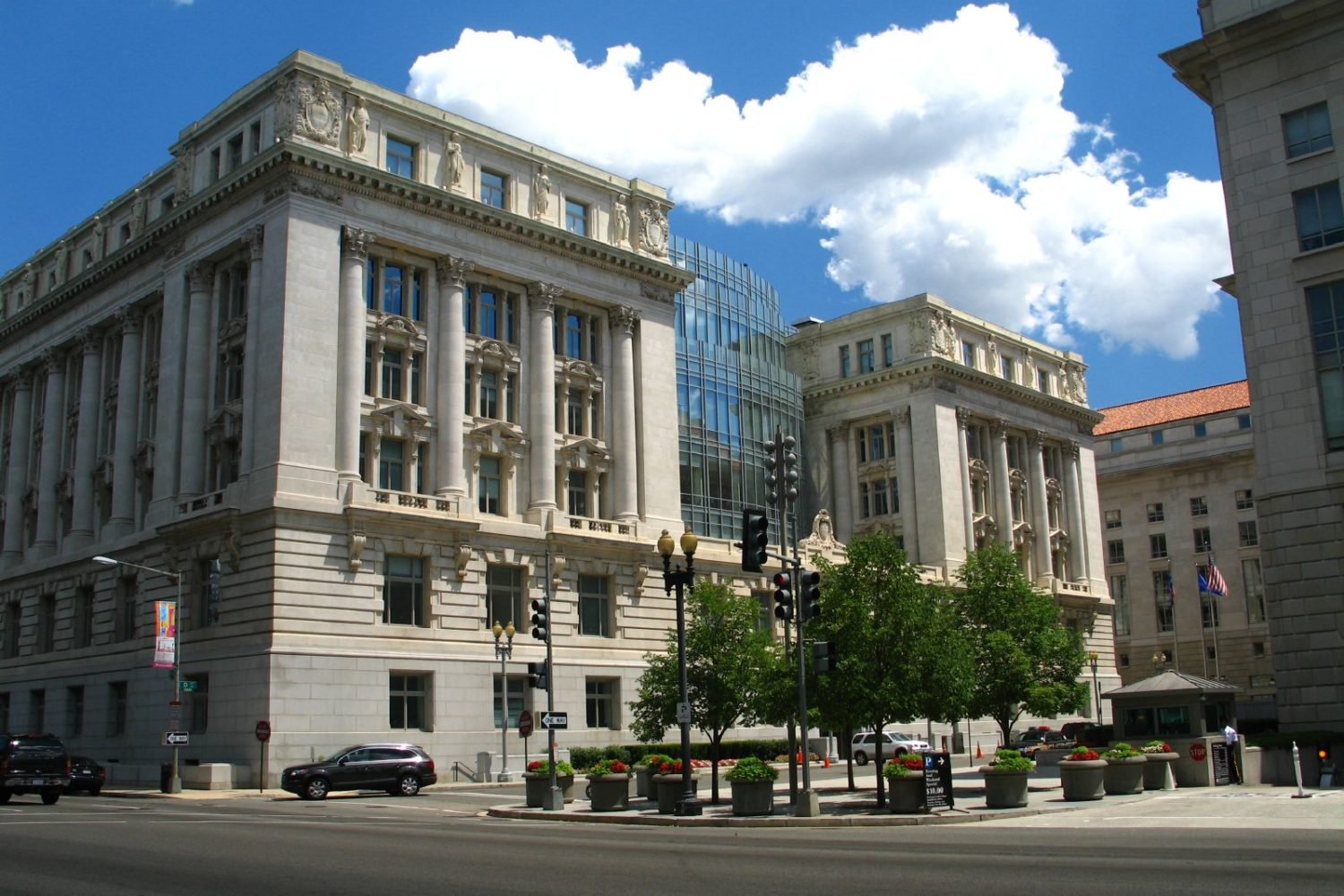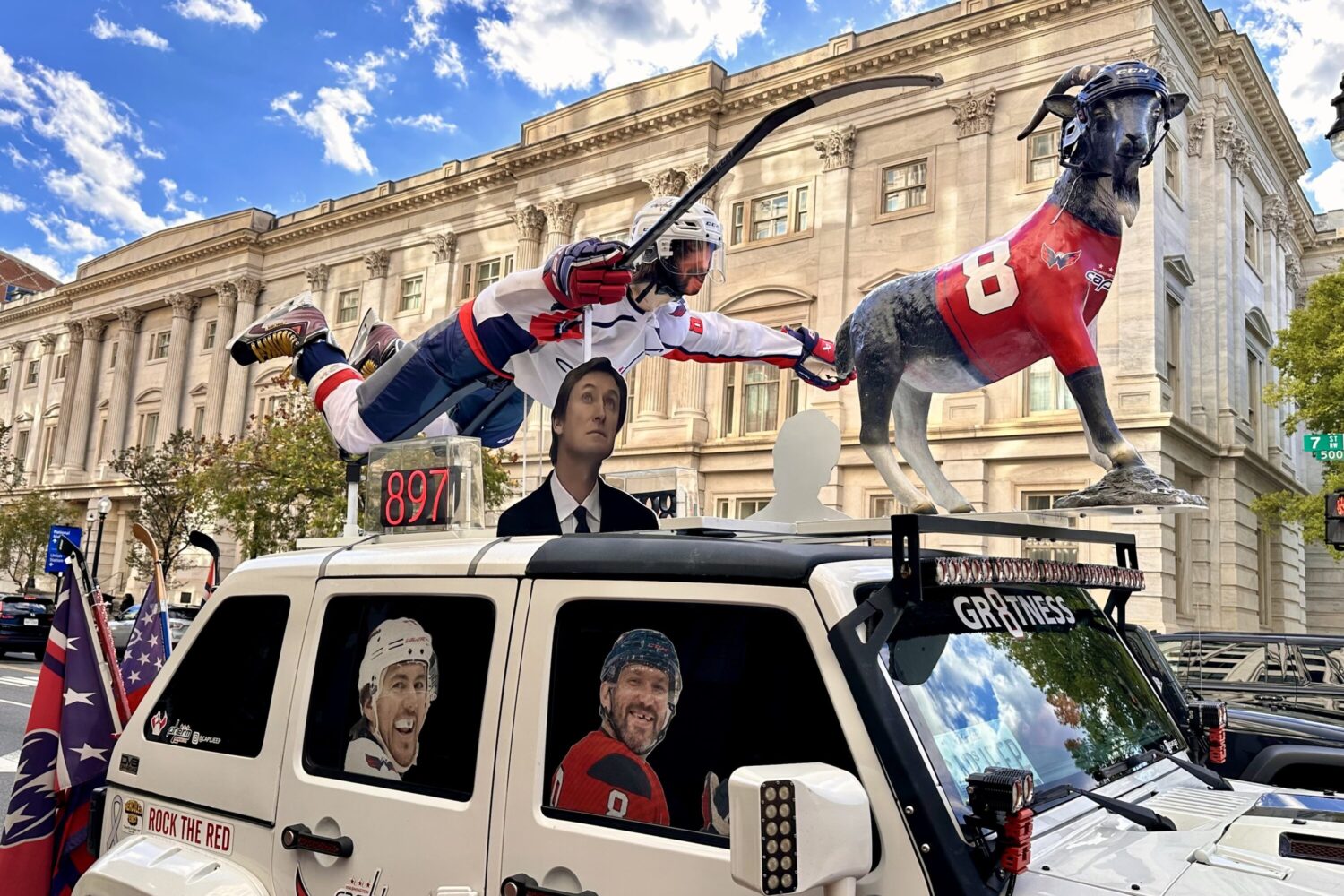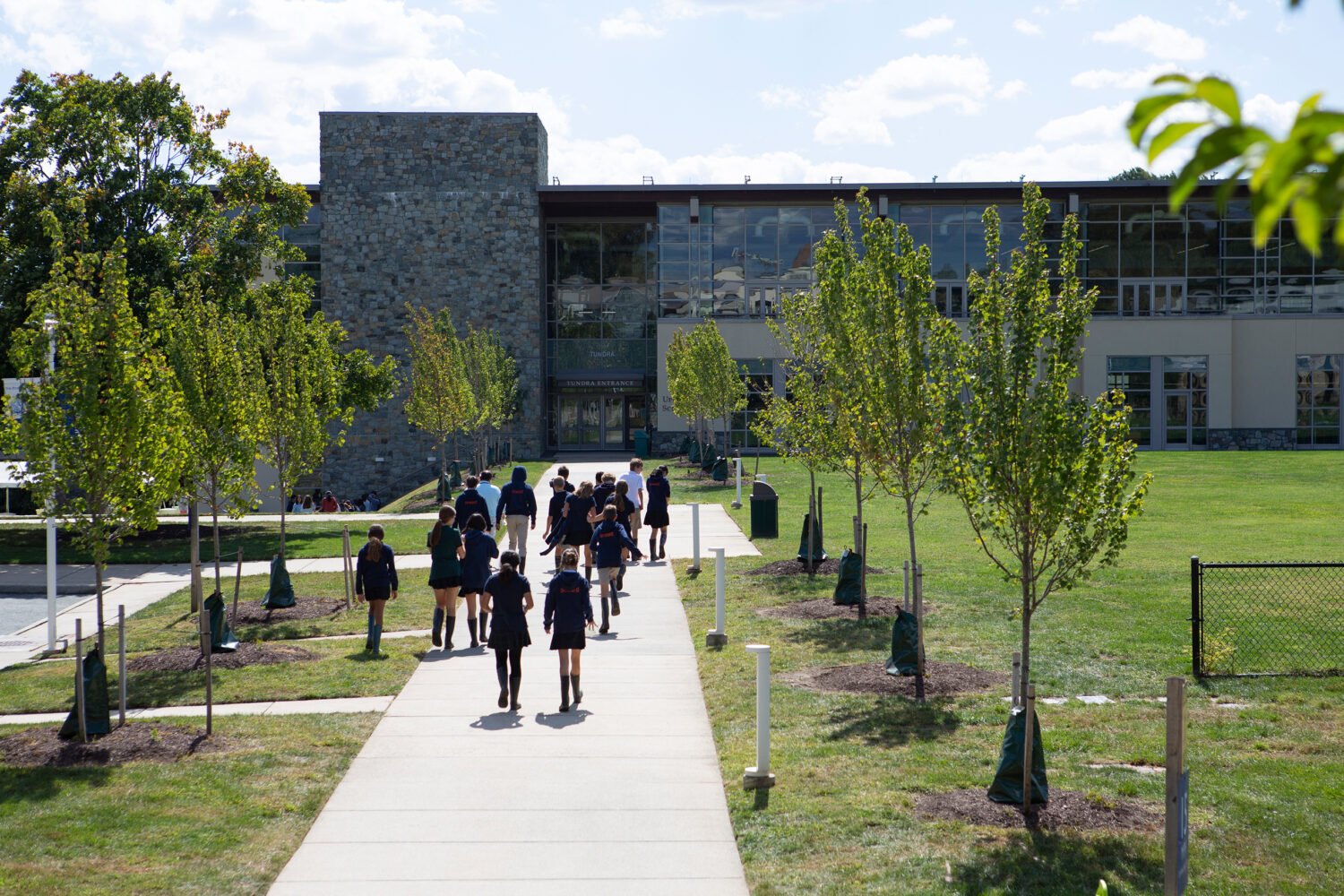On a recent Saturday afternoon, about a dozen people lined up in DC’s McPherson Square, braving the sweltering heat for perhaps their only solid meal of the day: rice, veggies, beans, lentils, and for dessert, a PediaLyte ice pop.
Since 2013, these weekly vegan meals—produced by the all-volunteer group Food Not Bombs and mostly furnished through donations—have made the park a respite for DC’s unhoused population. However, McPherson Square was also cited in a recent Supreme Court case that advocates fear could lead to increased criminalization of homelessness nationwide.
In June, the Supreme Court issued a 6-3 decision in Grants Pass v. Johnson, ruling that an Oregon town’s ordinance against public camping did not violate its homeless residents’ Eighth Amendment rights preventing “cruel and unusual punishment,” with the court’s six conservative justices joining the majority decision and the three liberals dissenting.
Eric Tars, the policy director for the National Homelessness Law Center, told Washingtonian that the Grants Pass ruling could encourage more localities across the country to pass anti-homelessness laws.
In DC specifically—where much land, including McPherson Square, is managed by the federal government through the National Park Service—the ruling’s impact on the unhoused not be known until after November’s election. Republicans recently have made greater control over the District’s governance part of their platform.
“There’s a danger of creating a race-to-the-bottom approach, where everyone is trying to make their laws harsher to force people elsewhere,” Tars said. “People come out within these reactionary proposals that just wanna push people out of sight, out of mind, and don’t want to address the systemic causes of why people are becoming homeless in the first place.”
In the Grants Pass majority opinion, Justice Neil Gorsuch noted the federal government had “exercised … authority to clear certain ‘dangerous’ encampments,” citing a February 2023 order from the National Park Service to clear a homeless encampment at McPherson Square—Food Not Bombs’s distribution site.
At that time, according to the NPS order, about 70 people were living at an encampment in McPherson Square. Three unhoused people had died from exposure or overdoses there in the previous six months, the order read, and the US Park Police made 30 arrests “for assault, threats, wanted individuals, and narcotics crimes” in that time period.
“NPS has also received increasing community complaints of open air drug and alcohol use, prostitution, public harassment of residents and visitors to the area, and trash and debris blocking public access,” the NPS order read. “However, NPS must consider the overall health and safety of all park users and will clear encampments when they pose a security, health, or safety risk.”
Hannah Flood, a Food Not Bombs organizer who shares Tars’ concerns and has volunteered at McPherson Square for over three years, told Washingtonian she’d personally never felt in danger there.
“We see a lot of people in deep distress, through addiction or mental health or just a general lack of resources and safety,” Flood said. “It would be disingenuous to say there are not distressing things all around us when we do stuff around here … but not enough to stop us from doing this.”
After DC cleared the encampment and NPS erected fences around the park’s green space, Food Not Bombs temporarily relocated their operations to a nearby sidewalk. A month later, The Washington Post reported, many of the encampment’s residents remained unhoused. Flood said her organization currently sees a similar amount of patrons every Saturday as it did before the clearing.
According to Flood, Food Not Bombs doesn’t anticipate the Grants Pass ruling affecting what it does in DC, as its operations currently fall under a precedent established in a separate court case against the organization’s Fort Lauderdale chapter. In that case, the 11th Circuit of the US Court of Appeals held that charitable food donations constituted protected First Amendment speech.
But the 11th Circuit precedent hasn’t stopped some jurisdictions from trying to criminalize Food Not Bombs’ work. Last year, the city of Houston cited several Food Not Bombs volunteers for violating a local ordinance against conducting a “food service event” on public property.
NPS and DC’s Deputy Mayor’s office for health and human services did not return Washingtonian’s request for comment.
One of the organization’s patrons at McPherson Square, Julia Raye, told Washingtonian it was her first time at the food distribution site. She said she had been evicted from her Alexandria home months ago and lived in her car before a doctor recommended she reside in a shelter after suffering an ankle infection.
All the shelters in Alexandria were full at the time, Raye said, forcing her to look to DC. When she finally found shelter, she said, she found herself getting disciplined for asking what their procedure was for cleaning cots after a bunkmate defecated.
“You see people out here sleeping in parks because, if they’ve been treated the way I’ve been treated … rather than be subjected to that, they’d rather sleep outside,” Raye said. “Places like this … all these people come out here and help and it’s actually a close knit community. They take care of each other.”

